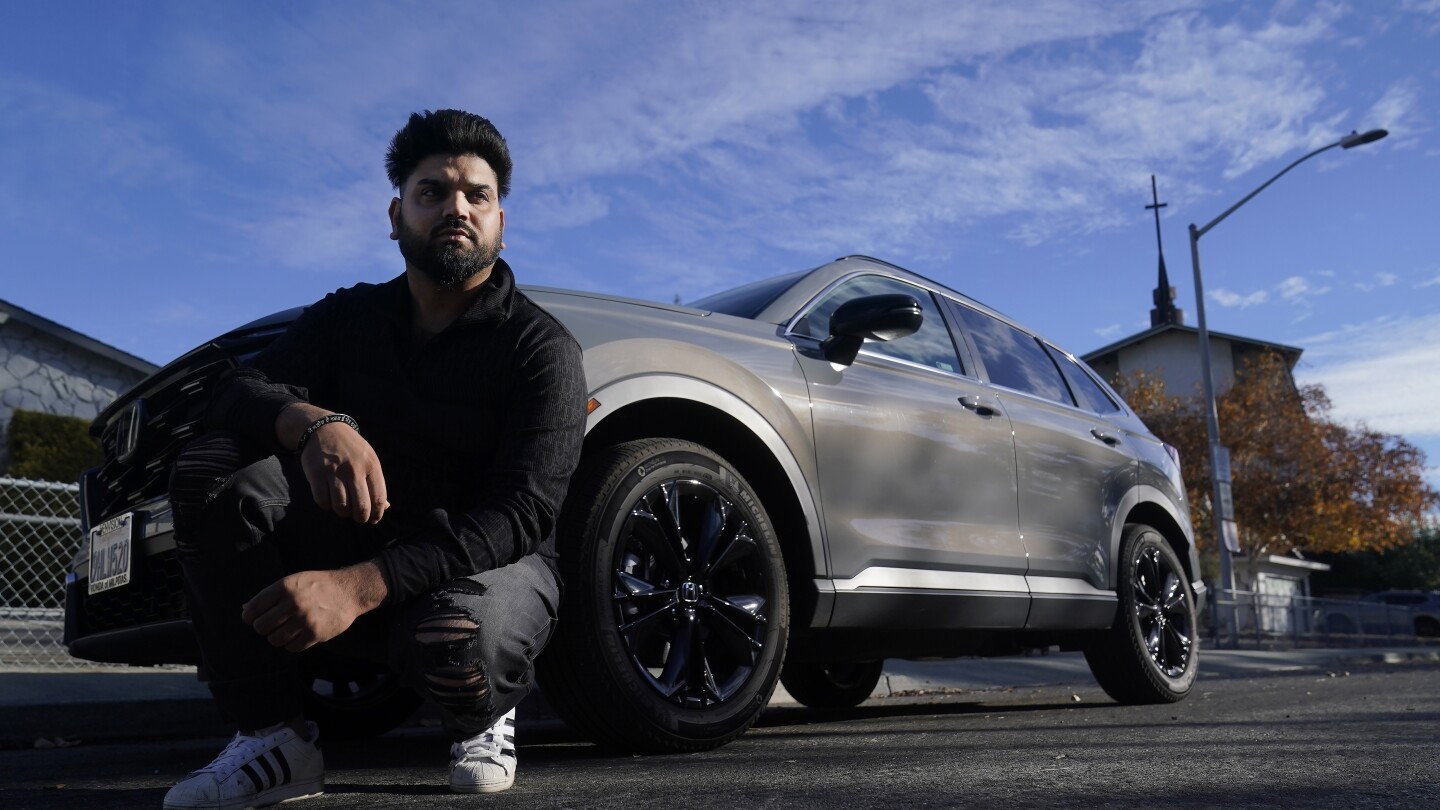America’s automakers have staked their futures on the notion that electric vehicles will dominate sales in the coming years, spurred by buyers determined to reduce carbon emissions and save on fuel.
But so far, while EV sales are growing, their pace is falling well short of the industry’s ambitious timetable for transitioning away from combustion engines. Instead, buyers are increasingly embracing a quarter-century-old technology whose popularity has been surging: The gas-electric hybrid, which alternates from gas to battery power to maximize efficiency.
So far in 2023, Americans have bought a record 1 million-plus hybrids — up 76% from the same period last year, according to Edmunds.com. As recently as last year, purchases had fallen below 2021’s total. This year’s figures don’t even include sales of 148,000 plug-in hybrids, which drive a short distance on battery power before a gas-electric system kicks in.



I’m hesitant for winter use… If it’s parked outside for several days in the cold without plugging it in, will I be stranded when I return to the vehicle? My understanding is that they often have a heater to keep the batteries warm, but that eats up your range over time. I feel like the technology right now is great for cities and milder climates (which is most people, let’s be fair).
Can I drive 100-200kms, park it, and then leave it for 3-4 days and then still have that 100kms range when I return, even in the winter (-5°C to -15°C being an average day)? I understand my usage is not typical and most of the time an EV would do the trick just fine, I just can’t afford two vehicles…
You’d need an EV with a pretty large battery to drive a total of 200-300kms without charging over a few days in that cold. It would be an expensive model to achieve that.
If that was truly your driving situation, as an avid EV proponent, I’d suggest you not get one. At best, you’d barely manage it. At worst it would end up costing a fortune for tows, additional electric set up (adding a plug at your destination), or tons of hours waiting to charge. It would be an overall shitty experience.
What makes you say that? What is an EV doing while parked in the cold for a few days that’s any different than when it’s parked in warm weather for a few days? Range is definitely impacted by cold weather, but that’s mostly from heating the battery pack up to an optimal temperature for efficiency and durability, which it wouldn’t need to do if it’s parked with the battery pack contactors open.
Though I agree with your broader point. If you don’t have charging at home (even if it’s a standard household plug, honestly that’s good enough if it’s sitting for a few days) , it really can be more hassle than anything else.
As someone who had a BMW i3 across four homes - a townhome with our own garage, an apartment with four charging spots for a hundred-ish residents, a 200+ unit condo with ZERO charging, and a nightmarish situation to ever have any added, and now a house with a garage… yeah don’t bother if you don’t have L1 or L2 charging at home or work.
https://www.bloomberg.com/news/articles/2023-12-15/how-to-keep-your-electric-car-battery-charged-in-cold-weather
Right, that’s when the car is turned on, or plugged in and charging.
If the car is parked out on the street for a few days without being driven or charged, I don’t think will experience a significantly higher battery drain just because it’s cold out.
The big hit comes when the car first turns on and starts warming everything up from being cold soaked, so there’s both the efficiency losses from the cold drivetrain as well as the battery charge used to power that heating.
Maybe I’m just splitting hairs tho
Sorry I didn’t see this for like a week. Liftoff doesn’t seem to notify for every response.
Batteries have a minimum temperature they stay above so cold can cause the battery heater to turn on. And heating up a cold soaked battery to proper operating temps does take a non-negligible amount of battery. 20 miles of range wouldn’t be unheard of on a particularly cold night. We can have months before freezing and multiple days in a row below zero.
Yeah, I’m really hoping the technology improves in the next decade to the point where EVs are viable for that sort of thing.
I’m in Canada and we’re looking to have all new vehicles sold be zero emission by 2035. Plug-in hybrids with at least an 80km range will count as zero emission though, and that does seem like a perfectly fair compromise that would work for me.
The battery heating isn’t gonna be on when the car is parked and sitting there for a few days. Only when the car is on, unless you decide to configure it to pre-heat everything for you (and even then, that’ll just be the cabin, not the whole battery system). If it’s sitting there,
I’d guess about a 20-25% range reduction in -15 C weather, depending a lot on what specific EV. So if you need to be able to drive 200km in the winter, park it for a few days, then drive another 100km before you can plug it in anywhere, look at EVs with 400km range, which I feel like most new EVs on the market already have.
This article seems to lay out some really good testing on this exact topic: https://www.whatcar.com/news/electric-car-best-winter-range/n24274